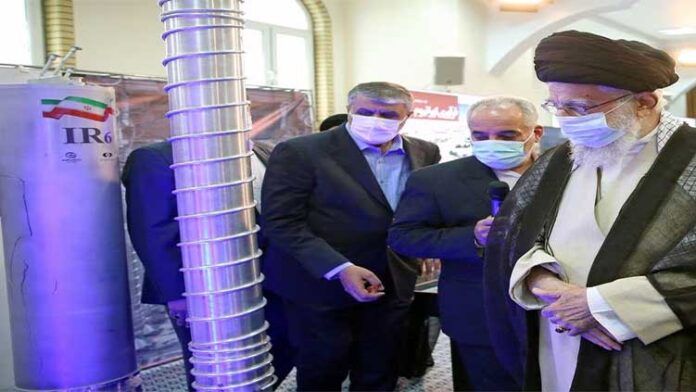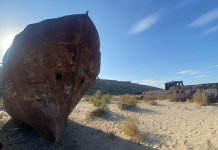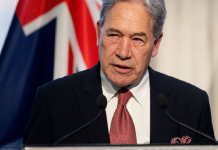DUBAI (Reuters) – Iran’s Supreme Leader Ayatollah Ali Khamenei declared that the Western powers would be powerless to prevent Iran from developing nuclear weapons if the country chose to pursue a nuclear arms program. Khamenei’s statement comes at a time of heightened tensions surrounding Iran’s advanced nuclear activities.
According to state media, Khamenei dismissed claims about Tehran’s pursuit of nuclear weapons as false. He asserted, “Talks about Tehran’s nuclear weapons is a lie, and they (the West) know it. We do not want nuclear arms based on our religious beliefs. Otherwise, they would not have been able to stop it.”
The Supreme Leader’s remarks reflect Iran’s longstanding official position that it does not seek to acquire nuclear weapons. Khamenei’s statement aims to refute any speculation or concerns regarding Iran’s intentions in the nuclear sphere, emphasizing the country’s commitment to religious principles that prohibit the pursuit of nuclear armaments.
The international community has closely monitored Iran’s nuclear program, particularly in light of its advanced nuclear activities. This has led to tensions and disputes between Iran and Western powers over the years. Khamenei’s assertion underscores Iran’s insistence that its nuclear program is exclusively for peaceful purposes, despite ongoing suspicions from some Western nations.
Iran’s Supreme Leader Ayatollah Ali Khamenei said that a nuclear deal with the West could be possible if Iran’s nuclear infrastructure remained intact, as Tehran and Washington revived the 2015 nuclear deal.
Indirect talks between Tehran and Washington aimed at saving the nuclear deal with major powers have been stalled since September, with both sides accusing the other of making unreasonable demands.
Ayatollah Ali Khamenei expressed his approval cautiously, after both Iran and the United States denied reports that they were close to an interim deal where Tehran would give up its nuclear program in exchange for sanctions relief. will limit
“There is nothing wrong with the agreement (with the West), but the infrastructure of our nuclear industry should not be touched,” Khamenei said, according to state media.
The 2015 deal imposed restrictions on Iran’s uranium enrichment activities to halt the development of nuclear weapons in exchange for the lifting of international sanctions.
However, in 2018, former US President Donald Trump withdrew from the deal and reimposed sanctions that severely affected Iran’s economy. As a result, Tehran began violating the nuclear restrictions outlined in the deal, raising concerns in the United States, Europe, and Israel about Iran’s possible pursuit of nuclear weapons.
In line with Iran’s long-standing official position, Khamenei reiterated that Iran had never sought to build a nuclear bomb, dismissing any allegations to the contrary. “The accusations that Tehran is seeking nuclear weapons are lies, and they know it. We don’t want nuclear weapons because of our religious beliefs,” he said.
Urging Iranian officials to continue working with the UN nuclear watchdog, the International Atomic Energy Agency (IAEA), under a safeguards framework, Khamenei called for the IAEA’s “excessive and unjustified demands” to be accepted. Also warned against He stressed the need to respect a law passed by Iran’s hardline parliament in 2020, which says Iran will suspend IAEA inspections and increase uranium enrichment if sanctions are not lifted. will give.
Khamenei praised the law, saying, “It is a good law which must be respected and not violated in providing access and information (to the IAEA).”
Last month, the IAEA reported limited progress on contentious issues with Iran, including the reinstallation of surveillance equipment that Tehran had previously ordered removed, originally set up under the 2015 deal.






